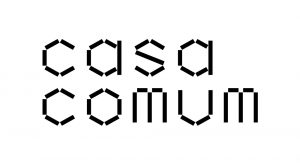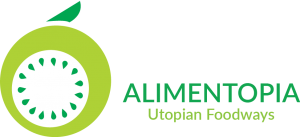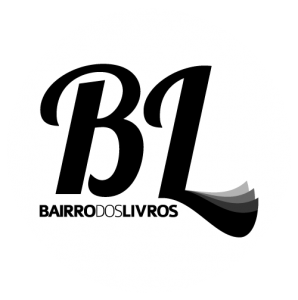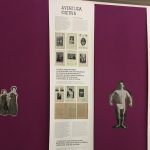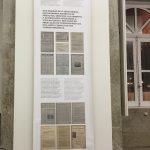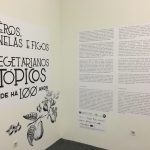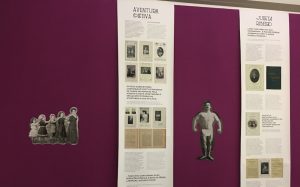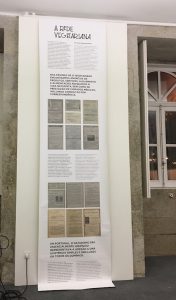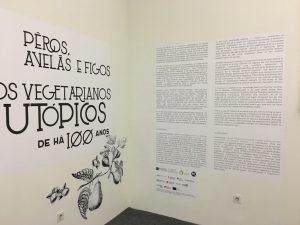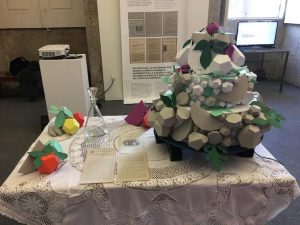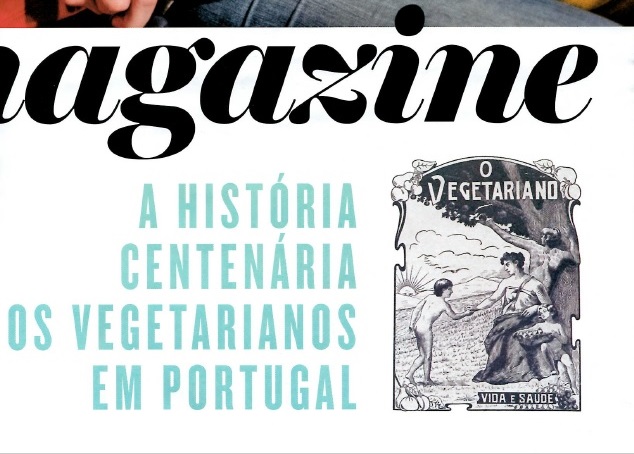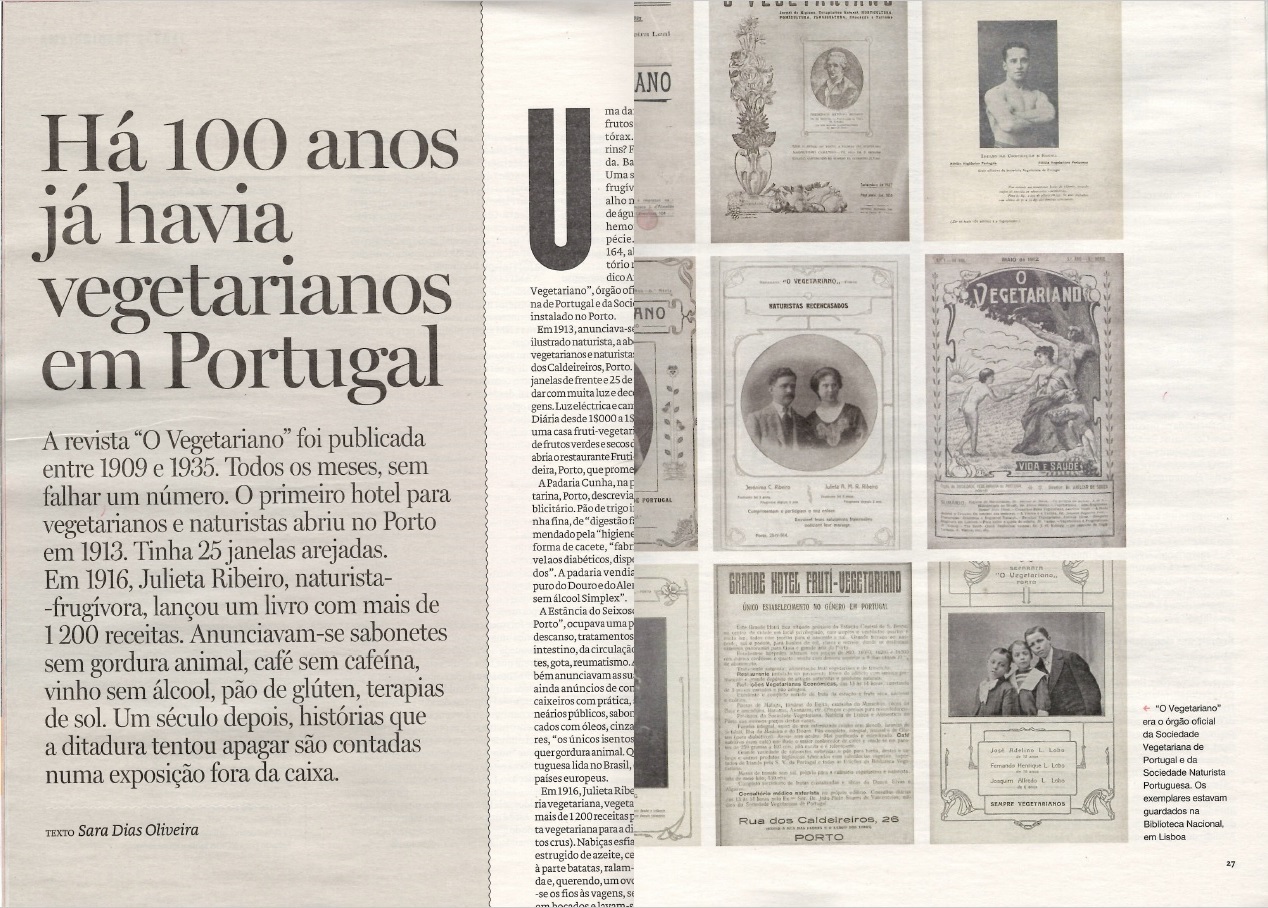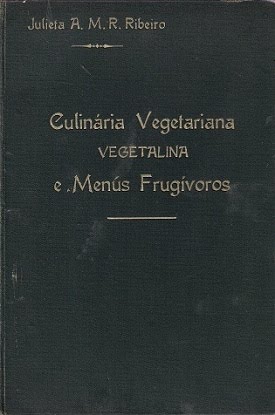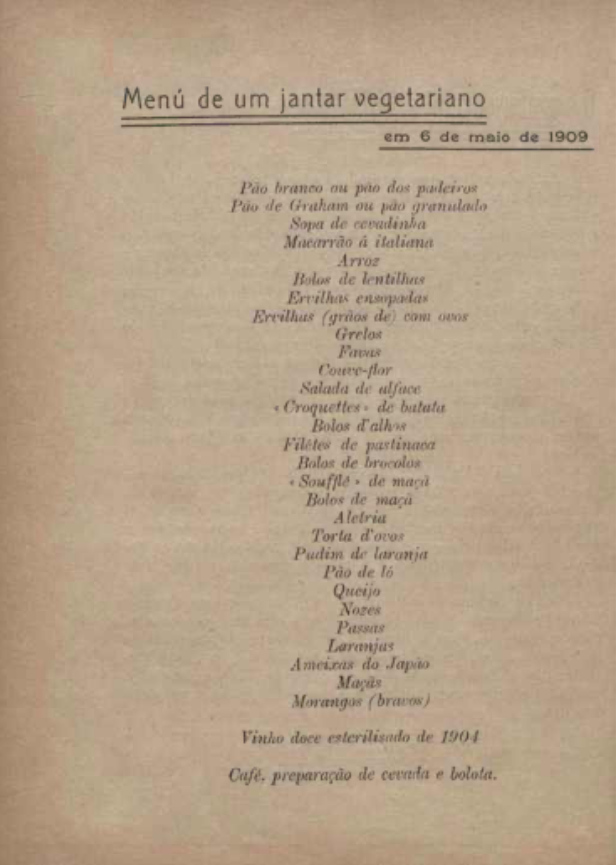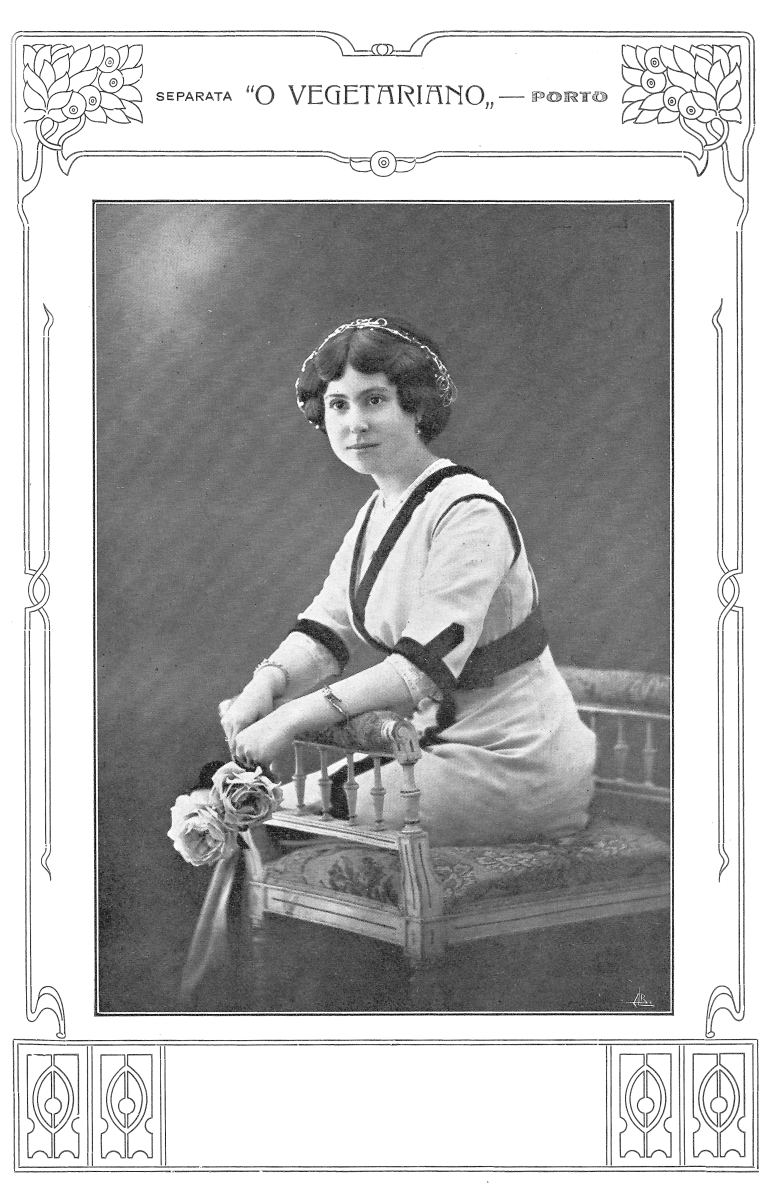

FROM NOVEMBER 21ST TO DECEMBER 27TH
Monday to Friday / 10am-8pm
@GALERY I OF RECTORY OF THE UNIVERSITY OF PORTO
THE EXHIBIT
“Official organ” of the Portuguese Vegetarian Society and the Lisbon Vegetarian Centre, but also of several vegetarian organisations in Brazil, O Vegetariano was founded in Porto in 1909 by a group of naturists. Published uninterruptedly until 1935, the year that marked the death of its owner, Prof. Manuel Teixeira Leal, the journal established itself as the meeting place for the Portuguese vegetarian community in the first decades of the twentieth century. It aimed to promote the diet as well as its underlying philosophy and way of life, aspiring to contribute to a utopian transformation of society.
O Vegetariano started as an “Illustrated Naturist Monthly” journal, but it became unrecognisable in its later years, being then presented as a “Journal of Hygiene, Natural Therapy, Horticulture, Pomiculture, Floriculture, Education and Tourism”. All of its potential to transform society had been drowned out by the nation glorifying doctrine imposed by the Estado Novo.
This is a story we need to know better to understand why vegetarianism had so many supporters a hundred years ago, and why we have no memory of our vegetarian ancestors today.
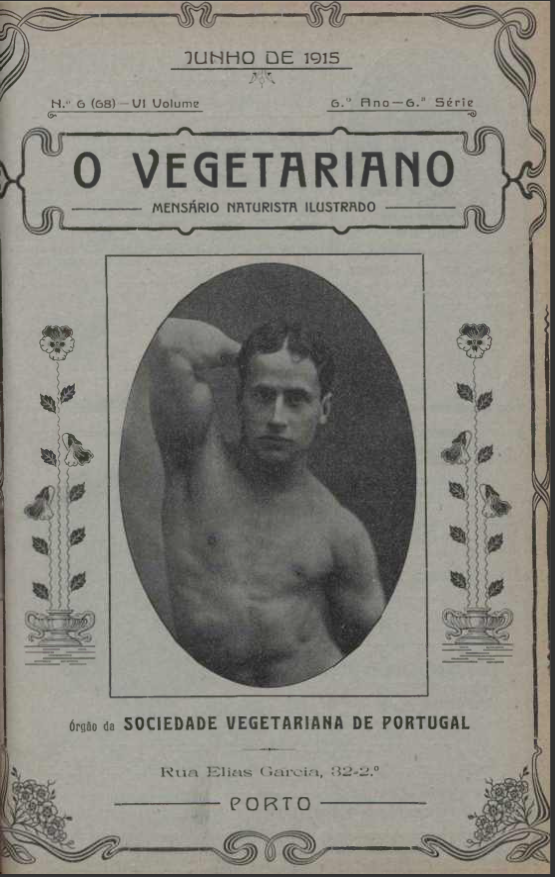
FROM NOVEMBER 21ST TO DECEMBER 27TH
Monday to Friday / 10am-6pm
@GALERY I OF THE RECTORY OF THE UNIVERSITY OF PORTO
THE EXHIBIT
“Official organ” of the Portuguese Vegetarian Society and the Lisbon Vegetarian Centre, but also of several vegetarian organisations in Brazil, O Vegetariano was founded in Porto in 1909 by a group of naturists. Published uninterruptedly until 1935, the year that marked the death of its owner, Prof. Manuel Teixeira Leal, the journal established itself as the meeting place for the Portuguese vegetarian community in the first decades of the twentieth century. It aimed to promote the diet as well as its underlying philosophy and way of life, aspiring to contribute to a utopian transformation of society.
O Vegetariano started as an “Illustrated Naturist Monthly” journal, but it became unrecognisable in its later years, being then presented as a “Journal of Hygiene, Natural Therapy, Horticulture, Pomiculture, Floriculture, Education and Tourism”. All of its potential to transform society had been drowned out by the nation glorifying doctrine imposed by the Estado Novo.
This is a story we need to know better to understand why vegetarianism had so many supporters a hundred years ago, and why we have no memory of our vegetarian ancestors today.

CLIPPING
CLIPPING
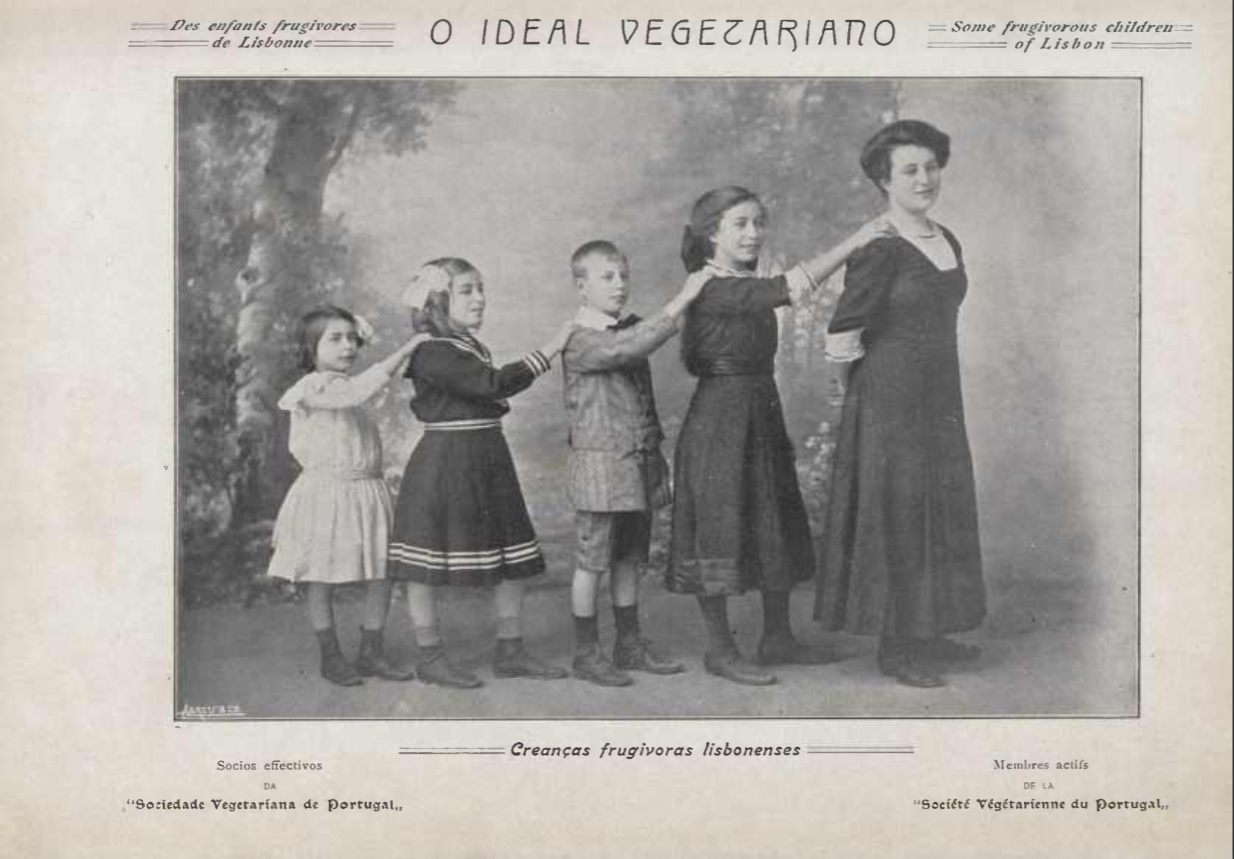

THE STORY BEHIND THE EXHIBIT
THE VEGETARIAN NETWORK
On the pages of O Vegetariano we find a true network of support to the vegetarian community: ads for accommodation services and food products suitable for the naturist lifestyle, both inside and outside the country, as well as for medical care, which included medical consultations by correspondence. In Porto and Lisbon, but also outside major cities (such as Caneças, Régua and Estremoz), a very active group of health professionals contributed to the magazine through scientific articles, practical advice and accounts of recovery cases of patients mislead by traditional medicine. They favoured natural healing methods such as heliotherapy (sun treatment), hydrotherapy, psychotherapy and naturism.
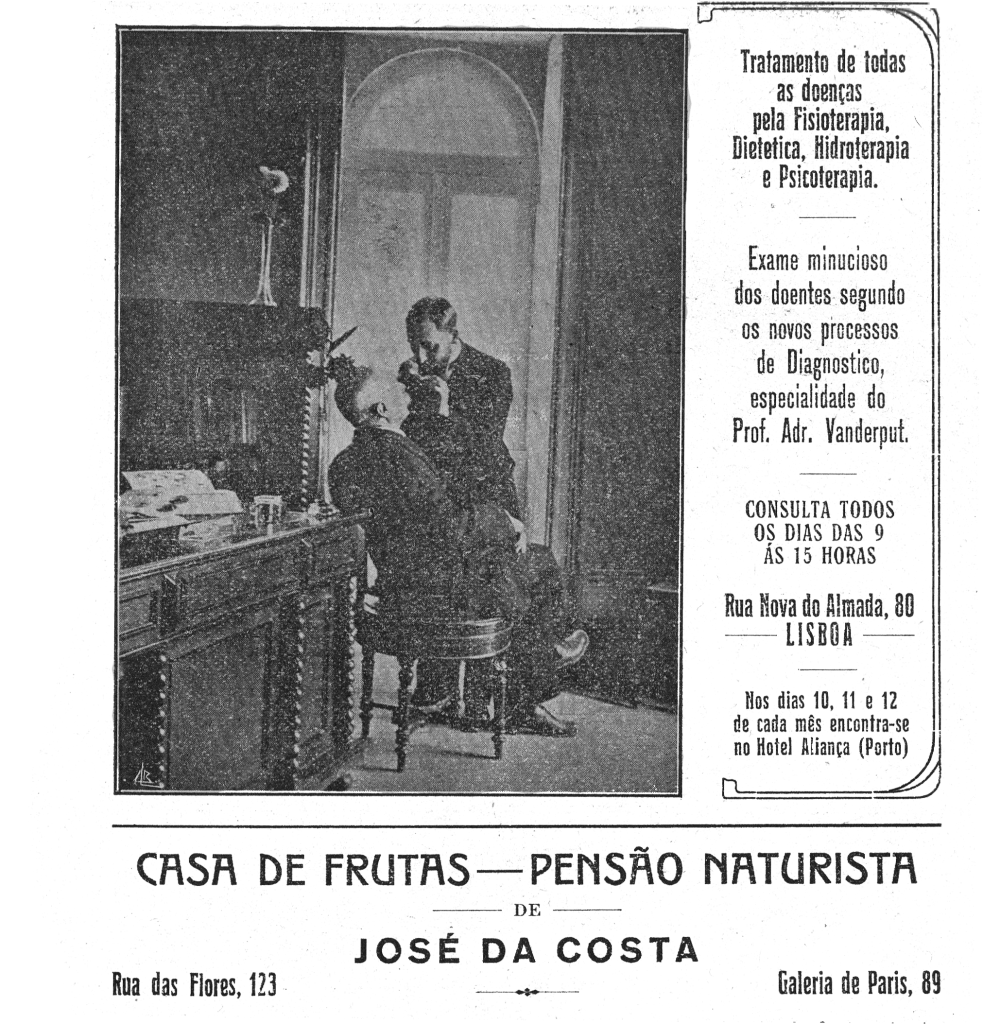

THE STORY BEHIND THE EXHIBIT
THE VEGETARIAN NETWORK
On the pages of O Vegetariano we find a true network of support to the vegetarian community: ads for accommodation services and food products suitable for the naturist lifestyle, both inside and outside the country, as well as for medical care, which included medical consultations by correspondence. In Porto and Lisbon, but also outside major cities (such as Caneças, Régua and Estremoz), a very active group of health professionals contributed to the magazine through scientific articles, practical advice and accounts of recovery cases of patients mislead by traditional medicine. They favoured natural healing methods such as heliotherapy (sun treatment), hydrotherapy, psychotherapy and naturism.


JULIETA RIBEIRO
Julieta Adelina Menezes Ribeiro married Jerónimo Caetano Ribeiro in 1914. O Vegetariano described the event as the world’s first frugivorous marriage, free from any “cadaverous remains”. In 1916, Julieta Ribeiro published Vegetarian and Vegan Cuisine and Frugivorous Menus (1916).
The book, enthusiastically received by the vegetarian community (it would come to have four editions), featured more than 1,200 recipes meant for each of the twelve months of the year, taking into account the foods available each season. The book suggested recipes for those who wanted to make the transition from vegetarianism to veganism (fruit and vegetables) and then eventually to a frugivorous diet (eating raw fruits only).
JULIETA RIBEIRO
Julieta Adelina Menezes Ribeiro married Jerónimo Caetano Ribeiro in 1914. O Vegetariano described the event as the world’s first frugivorous marriage, free from any “cadaverous remains”. In 1916, Julieta Ribeiro published Vegetarian and Vegan Cuisine and Frugivorous Menus (1916).
The book, enthusiastically received by the vegetarian community (it would come to have four editions), featured more than 1,200 recipes meant for each of the twelve months of the year, taking into account the foods available each season. The book suggested recipes for those who wanted to make the transition from vegetarianism to veganism (fruit and vegetables) and then eventually to a frugivorous diet (eating raw fruits only).
A COLLECTIVE ADVENTURE
Subscribers would contribute with testimonials of miraculous recoveries thanks to the vegetarian diet and would send photographs to prove their physical robustness and the effectiveness of the diet, thus contradicting the ideas of leanness and weakness often associated with it.
B. Wiborg, from Lisbon, for example, detailed the naturist lifestyle and the frugivorous diet of his children in a letter sent to the periodical, reporting on their workout and sunbathing routine, early in the morning, as well as their athletic achievements and high intellectual ability – all with just two meals a day consisting of pears, oranges, hazelnuts and figs!
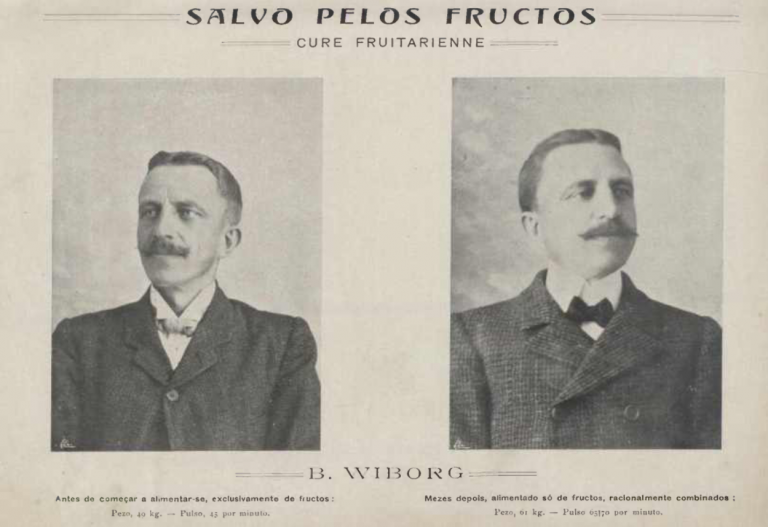
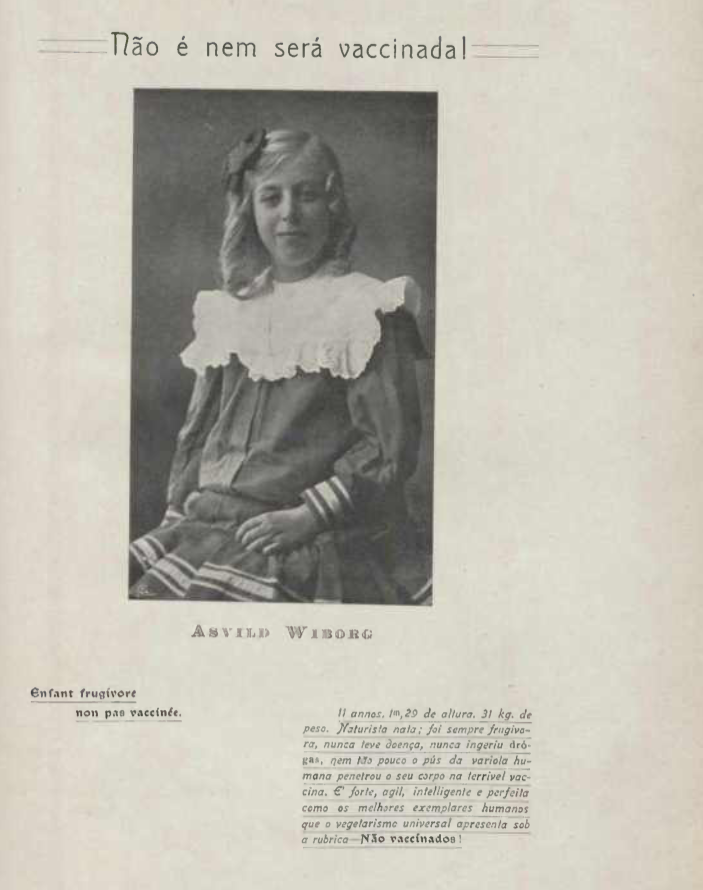
A COLLECTIVE ADVENTURE
Subscribers would contribute with testimonials of miraculous recoveries thanks to the vegetarian diet and would send photographs to prove their physical robustness and the effectiveness of the diet, thus contradicting the ideas of leanness and weakness often associated with it.
B. Wiborg, from Lisbon, for example, detailed the naturist lifestyle and the frugivorous diet of his children in a letter sent to the periodical, reporting on their workout and sunbathing routine, early in the morning, as well as their athletic achievements and high intellectual ability – all with just two meals a day consisting of pears, oranges, hazelnuts and figs!





FROM AMNESIA TO THE RECONSTRUCTION OF A MEMORY
As it was, the dietary regime of vegetarians also implied the adoption of a moral standpoint which called for political intervention, presenting itself as the only possible solution to the country’s social, moral and health-related problems. These political implications, perceived as a threat by the Estado Novo, would lead to the erasure of our vegetarian ancestors from our collective memory.
“Targeted by censorship” since 1928, O Vegetariano became unrecognisable by 1935, the year of its extinction.
FROM AMNESIA TO THE RECONSTRUCTION OF A MEMORY
As it was, the dietary regime of vegetarians also implied the adoption of a moral standpoint which called for political intervention, presenting itself as the only possible solution to the country’s social, moral and health-related problems. These political implications, perceived as a threat by the Estado Novo, would lead to the erasure of our vegetarian ancestors from our collective memory.
“Targeted by censorship” since 1928, O Vegetariano became unrecognisable by 1935, the year of its extinction.
Research project funded by FEDER Funds through the Competitiveness and Internationalization Operational Programme - COMPETE 2020 and National Funds through the FCT - Foundation for Science and Technology under the project PTDC/CDC-ELT/5676/2014 | POCI-01-0145-FEDER-016680, and and by National Funds.

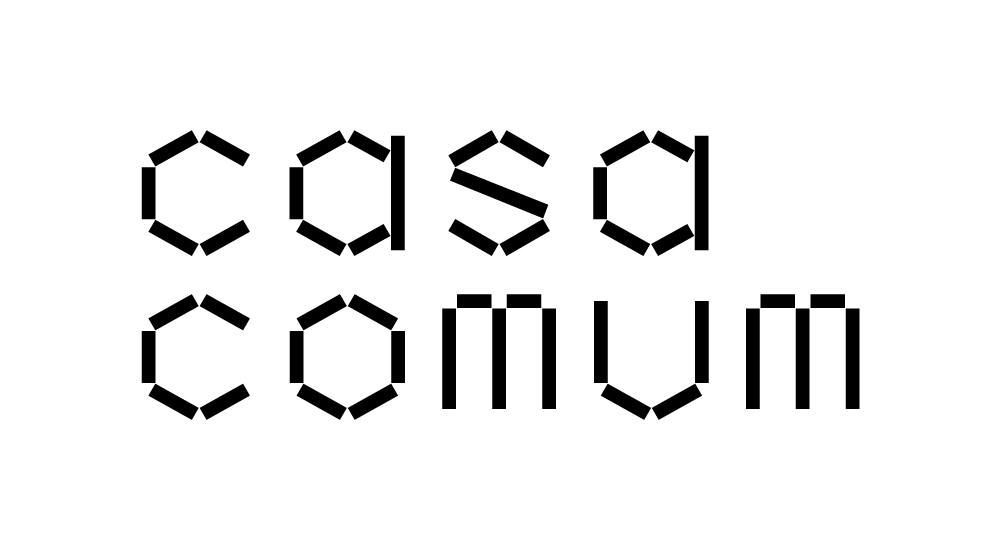
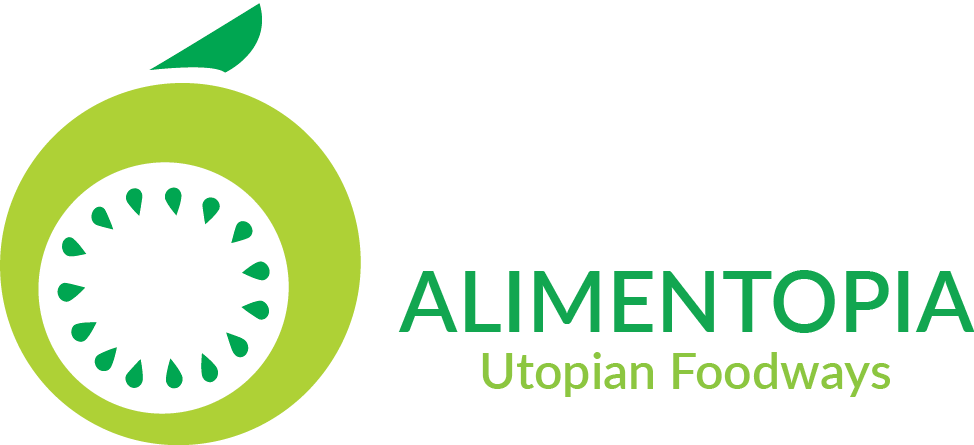
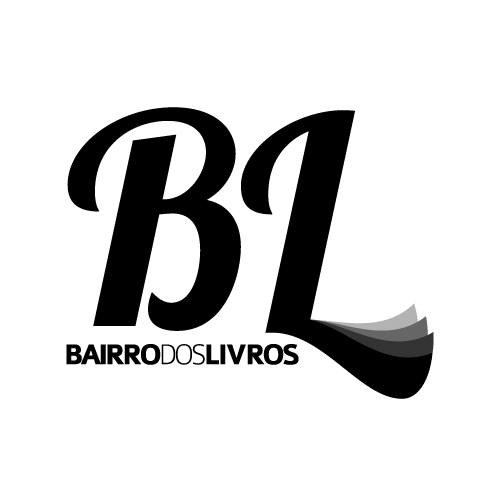






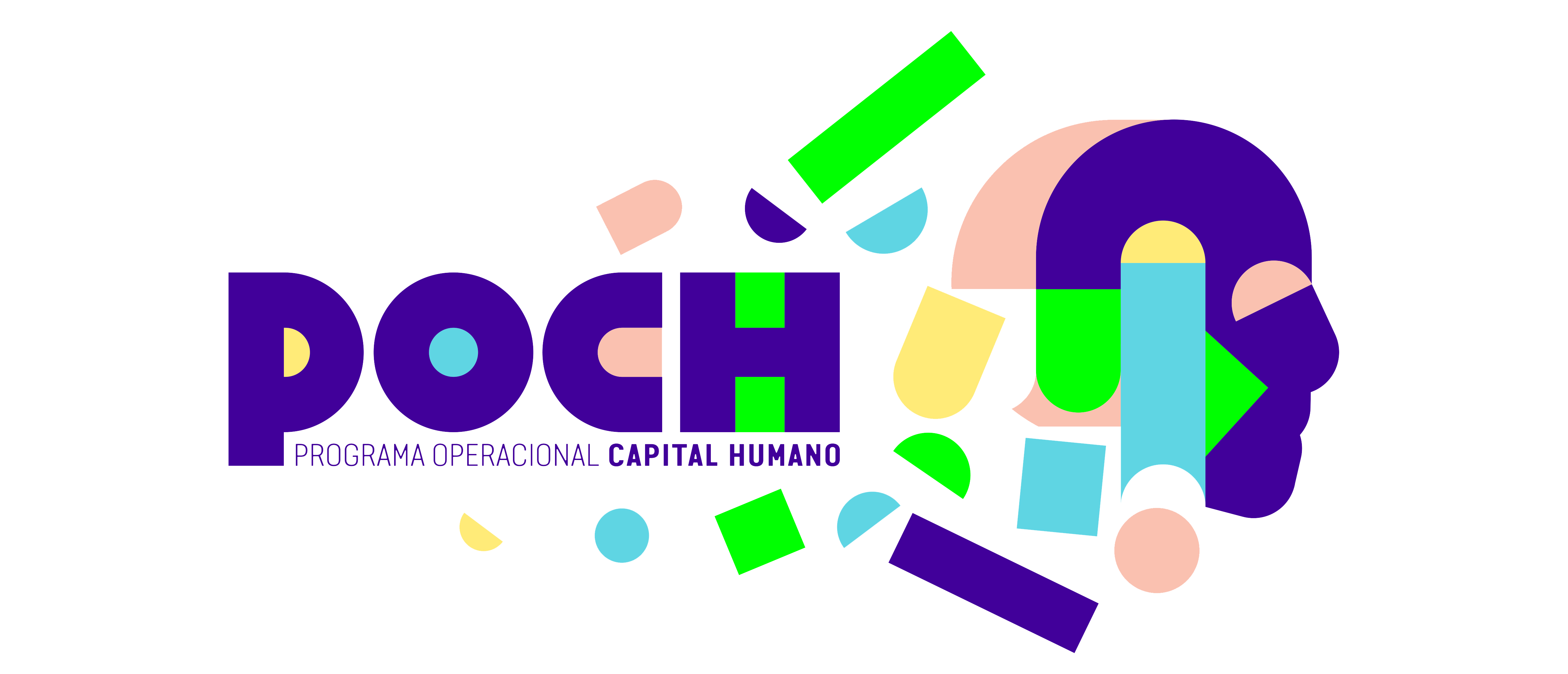
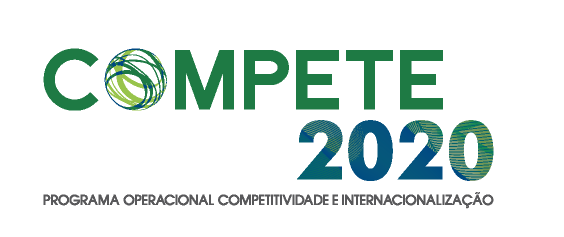



@RECTORY OF THE UNIVERSITY OF PORTO
22 040 8000
Praça de Gomes Teixeira, Porto
Monday to Friday / 10am - 6pm
Research project funded by FEDER Funds through the Competitiveness and Internationalization Operational Programme - COMPETE 2020 and National Funds through the FCT - Foundation for Science and Technology under the project PTDC/CDC-ELT/5676/2014 | POCI-01-0145-FEDER-016680, and and by National Funds.

